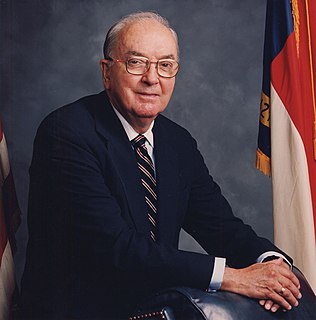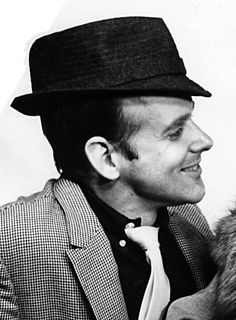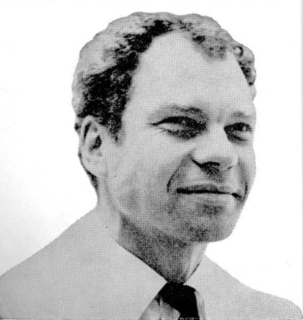A Quote by Jesse Helms
To rob the Negro of his reputation of thinking through a problem in his own fashion is about the same as trying to pretend that he doesn't have a natural instinct for rhythm and for singing and dancing.
Related Quotes
To translate, one must have a style of his own, for the translation will have no rhythm or nuance, which come from the process of artistically thinking through and molding the sentences; they cannot be reconstituted by piecemeal imitation. The problem of translation is to retreat to a simpler tenor of one’s own style and creatively adjust this to one’s author.
The individual man, in introspecting the fact of his own consciousness, also discovers the primordial natural fact of his freedom: his freedom to choose, his freedom to use or not use his reason about any given subject. In short, the natural fact of his "free will." He also discovers the natural fact of his mind's command over his body and its actions: that is, of his natural ownership over his self.
The Tiger Rising is, again, about a motherless child. His name is Rob Horton. He is dealing with the death of his mother, when he and his father move to a new town. And two things happen the same day that Rob gets sent home. One is he meets a girl named Sistine Bailey, who is what my mother would call "a piece of work," and he finds a real tiger in a cage in the woods behind the motel where he lives with his dad. And that's the story: what happens with the Sistine tiger, the real tiger and Rob's grief.
IN THE CINEMA A DIRECTOR EXPRESSES HIS INDIVIDUALITY FIRST AND FOREMOST THROUGH HIS SENSE OF TIME, THROUGH RHYTHM. RHYTHM GIVES COLOUR TO A WORK BY DISTINGUISHABLE STYLISTIC CHARACTERISTICS. RHYTHM MUST ARISE NATURALLY IN A FILM, A FUNCTION OF THE DIRECTOR'S INNATE SENSE OF LIFE AND COMMENSURATE WITH HIS QUEST FOR TIME.
Private property is a natural fruit of labor, a product of intense activity of man, acquired through his energetic determination to ensure and develop with his own strength his own existence and that of his family, and to create for himself and his own an existence of just freedom, not only economic, but also political, cultural and religious.
There's no thinking involved in my choreography... I don't work through images or ideas. I work through the body... If the dancer dances, which is not the same as having theories about dancing or wishing to dance or trying to dance, everything is there. When I dance, it means: this is what I am doing.
Our culture, therefore, must not omit the arming of the man. Let him hear in season, that he is born into the state of war, and that the commonwealth and his own well-being require that he should not go dancing in the weeds of peace, but warned, self- collected, and neither defying nor dreading the thunder, let him take both reputation and life in his hand, and, with perfect urbanity, dare the gibbet and the mob by the absolute truth of his speech, and the rectitude of his behaviour.


































